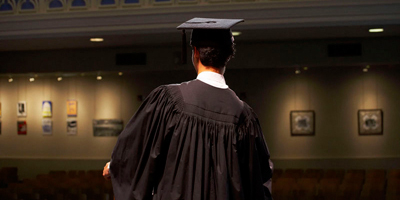
 Proponents of the education voucher bill are giving it a facelift that they hope will make it more attractive to legislators.
Proponents of the education voucher bill are giving it a facelift that they hope will make it more attractive to legislators.
Neil Mellen said there are basically three changes to the bill, all designed to make it simpler and more palatable from a financial perspective.
Mellen is the communications director for South Carolinians for Responsible Government, a group that has been fighting for school choice for seven years.
The revised bill
According to Mellen, in the new S.C. Education Opportunity Act bill:
All students who qualify for tax credits will receive half of the state’s per-child spending, or about $2,200.
Before, the amount was determined by need, with some receiving all of the $4,500 while others were tagged for 75 percent or 50 percent.
Children already attending private or parochial schools will not be eligible for tax credits right away, but will be phased in to allow state savings to accrue.
A matriculation system was created that starts in kindergarten and moves up one grade each year for a 13-year phase-in, which also allows time for savings.
Is this the one?
A new school-choice bill has been introduced almost every legislative session for the past six years.
The last one, in May 2009, was sent back to committee because it didn’t have the necessary votes to pass in the Senate. But times have changed, and officials say the bill has a shot at passing this year.
For one thing, newly elected Superintendent of Education Mick Zais has said he supports options for poor children stuck in failing schools.
Also, Gov.-elect Nikki Haley opined during her campaign that if a bill reached her desk she would sign it.
Past bills have failed because opponents fear it will hurt an already ailing public school system.
Finances
It’s a he-said, she-said argument over whether tax credits to provide school choice would financially hurt public schools or not.
The way financing works, each school receives about $12,000 per student from federal, state and local coffers. The state portion is about $4,500 per student.
School choice would give students who transfer from public schools and kindergartners half of the state amount.
Mellen said they took the concerns of state budget writers into account and crafted this bill so schools won’t suffer a loss of revenue and can accrue savings because they will still receive most of the money to teach fewer students.
Opponents, including Superintendent Jim Rex, have said that argument is simplistic because per-child funding covers over 200 items, including bus routes, maintenance and operations costs.
Rex has said that a few children leaving a public school will not diminish those costs.
Accountability
Another issue for proponents and opponents revolves around accountability in terms of testing and other state mandates.
Opponents argue that private/parochial schools should not receive state money because they are not accountable to the public and do not take standardized state tests.
Jacqualine Kasprowski, interim co-superintendent of Catholic schools in the diocese, said they take a wide range of nationally normed tests, including the PSAT, SAT and ACT, which are all given to public school students also.
She also noted that Catholic school students score, on average, higher than students from public schools.
“We feel this more than qualifies us,” she said.
Kasprowski met with principals from the 32 diocesan schools recently to update them on the bill. She encouraged them to educate their communities about the school choice issue and what it can mean for their families.
“The legislators need to know that the moms and dads, the voters of the state … are very much behind this,” she said. “The one-size fits all approach to education really doesn’t make sense.”
